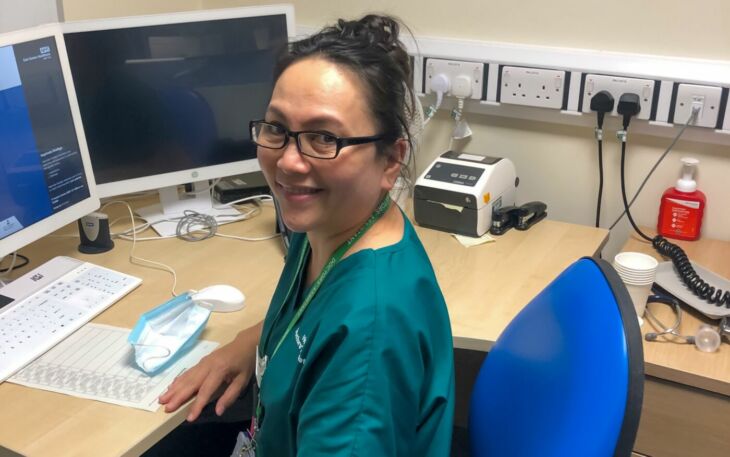
In 2017 we received funding from Health Education England for six doctor’s assistant posts.
The role of doctor’s assistant looks to take away some of the administrative and clinical pressures on doctors, in order to help increase productivity and, hopefully lead to a reduction in the length of stay for patients.
Helen Wilkins was one of the original five assistants and has been working at the trust for six years now. We spoke to her about what a day in the life of a doctor’s assistant involves.
“You have to be very organised in this job and be able to prioritise your own and the doctor’s workloads,” says Helen. “You also have to really understand what the doctors are doing so you can relieve them of as much as you can.
“Each day varies greatly. I start by preparing rounds for the consultants, which can include checking whether blood results are in or adding notes to patients’ records. I can also carry out canulations and vein punctures, which not all doctor’s assistants can and is really helpful for the doctors and nurses on the ward.
“The best part of the job is being able to help patients get home without any delays. I can carry out some things myself, such as dementia screening, pushing for test results and chasing medication.
“Being able to take pressure off the doctors and nurses to allow them to spend more time with patients is such a big part of the job. As a doctor’s assistant I can go in and prepare things for them before they even see the patient.”
We asked Helen what she feels the main qualities for a good doctor’s assistant are.
“You need good common sense and to be logical,” explains Helen. “You have to be able to prioritise your work and understand the process so you are able to anticipate what is needed. You need to know what patients are on the ward, what tests they need, what meds they require. Part of my role is to make the right choices so that the patient can be discharged as soon as possible.”
Helen is shortly moving on from her role, but says she has really enjoyed the opportunities that being a doctor’s assistant has given her.
“I have loved my role,” she concludes. “Knowing I am helping and making a difference to how a patient is treated, knowing that I can really help the doctors and nurses do their jobs more effectively. It has made me feel really needed and appreciated. It is such a nice feeling when the whole team works together to really push for the patient to be able to go home. It really feels like a team effort.”
